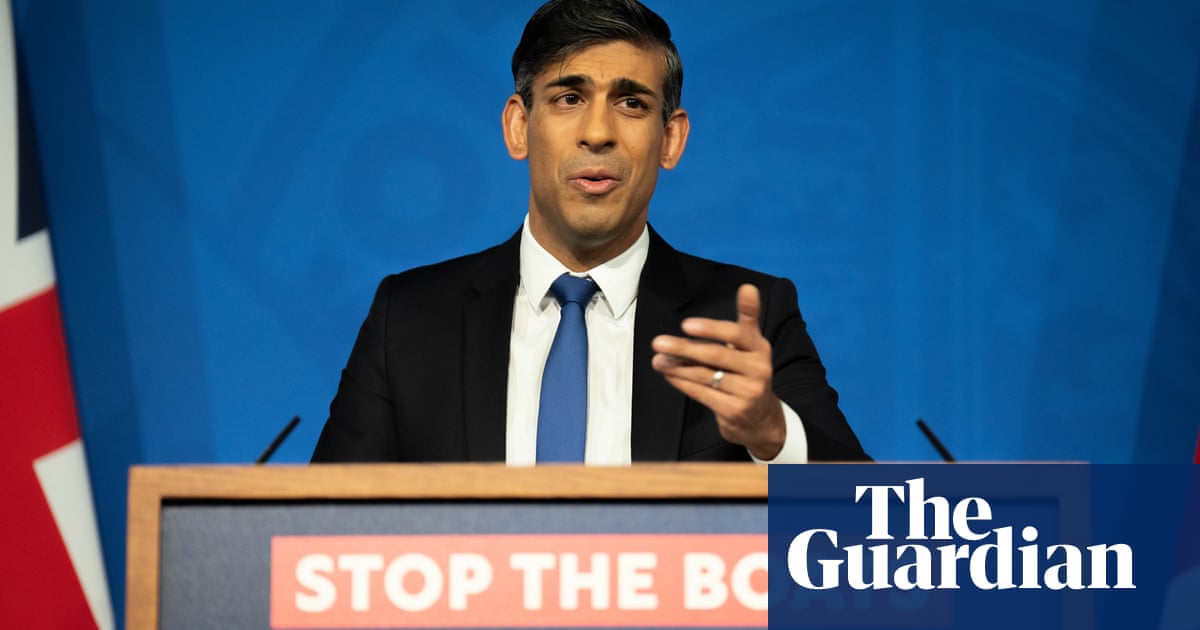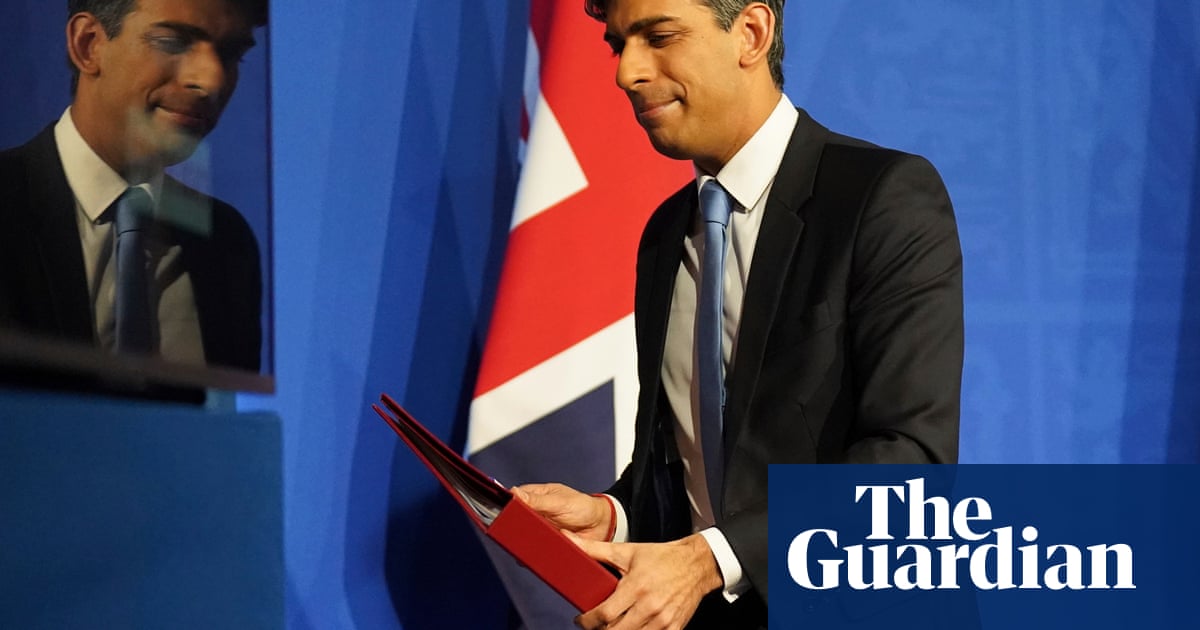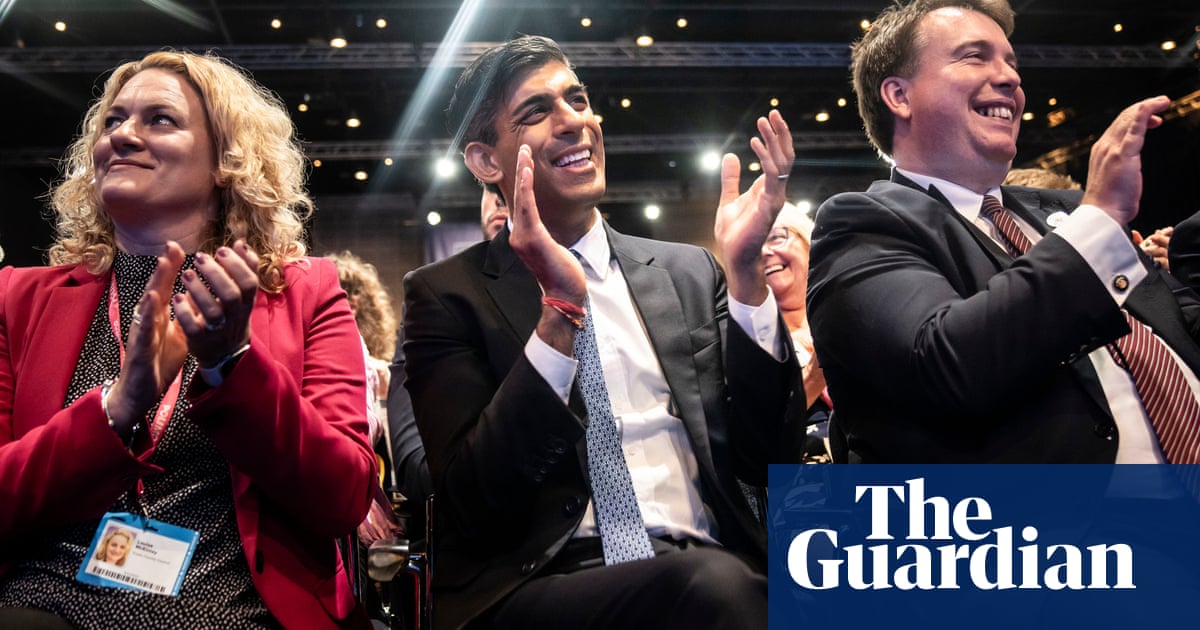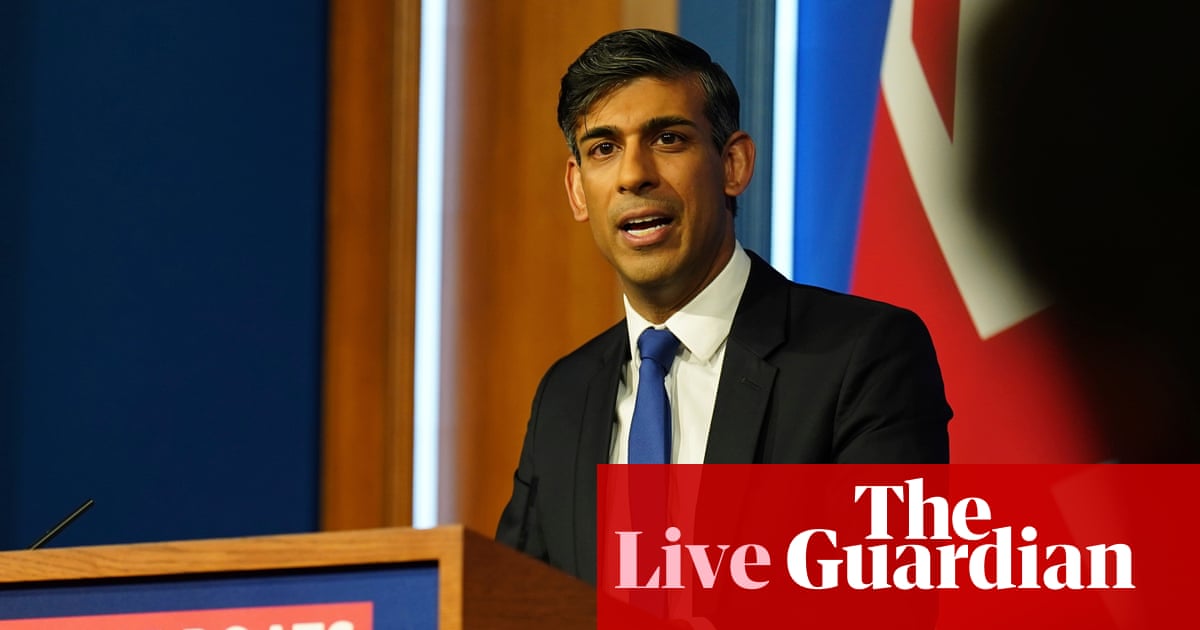
One of the difficulties for Rishi Sunak in securing enough votes to pass the Rwanda bill was that the potential rebels – who in the end largely stayed onside for the crucial third reading – came from varied groups within the party, each with different motivations and demands.
In trying to keep his divided party together, the prime minister sought to please centrists who do not want the bill to change, veteran Eurosceptics with a deep dislike of the European court of human rights, ambitious MPs positioning themselves for a potential leadership bid, and people who usually do what Boris Johnson suggests.
So who are the groups that Sunak and his top team spent the week trying to buy off, and what do they want?
New Conservatives
Tory MPs elected in 2019 have proved to be a difficult group for the prime minister to control – something whips might not have expected given that many are young, ambitious and have hopes for high office in the future.
But this group of MPs mostly in the so-called red wall are those most at risk of losing their seats at the next election, and many are worried that a vote for the Rwanda bill could be used against them by the rightwing Reform UK party at the next election.
Their group, named the New Conservatives, has made its presence felt since launching last May.
Lee Anderson was hired by Sunak as deputy chair of the party to woo voters whom the prime minister struggles to reach. His resignation on Tuesday, alongside that of fellow 2019-intake MP Brendan Clarke-Smith, was a particular blow to Sunak because it fuelled claims that he does not understand the “red wall”. Neither voted against the bill on Wednesday. The group’s leaders, Miriam Cates and Danny Kruger, were among the 11 Conservatives who rebelled in the third reading.
Old Brexiters
Many of those involved in the ructions of recent weeks are those who spent years campaigning for Britain to leave the EU, and then to do so on the toughest possible terms. This group has never liked being under the jurisdiction of the European court of human rights and has spearheaded attempts to allow ministers to ignore its rulings.
The de facto leader of the group is Bill Cash, who has been an MP since 1984 and led the rebellions against the Maastricht treaty in the early 1990s.
Cash wrote an amendment that would have set aside Strasbourg rulings on the Rwanda scheme, which lawyers have criticised but which 61 Tories voted for on Tuesday night.
Cash and his fellow arch-Brexiter David Jones were among the handful to vote against the bill on Wednesday night.
Former ministers
Some of the most well-known names among Tuesday night’s rebels over amendments to the Rwanda bill were those who have held high office in the past and know well what it is like to be on the receiving end of such a rebellion.
The former prime minister Liz Truss, the former home secretary Suella Braverman, the former immigration minister Robert Jenrick and the former housing secretary Simon Clarke all voted in favour of both amendments on Tuesday; Jenrick wrote one of them himself.
While each of these ex-ministers comes at the problem of asylum from a slightly different perspective, one thing unites them: they are all reported to have an eye on the leadership should it become vacant before or after the election.
With the Tories on average 18 points behind in the polls, the whips have found it difficult to persuade many of this group to back the current prime minister rather than burnishing their credentials to be the next. Braverman, Clarke and Jenrick all voted against the bill on Wednesday.
Boris Johnson loyalists
One of the most unwelcome interventions for the prime minister during this week’s debates on the Rwanda bill came from someone not in the Commons at all – the former prime minister Boris Johnson.
“This bill must be as legally robust as possible – and the right course is to adopt the amendments,” Johnson tweeted on Monday.
His words were heeded by some of his closest parliamentary allies, including Michael Fabricant, Jacob Rees-Mogg and Marco Longhi, but none of them voted against the bill on Wednesday.
Many in this group will have expressed deep-seated concerns with the wording of the bill. But they may also have enjoyed watching the man they regard as responsible for Johnson’s downfall squirm.
One Nation
Part of Rishi Sunak’s problems over the last few days is that he needs to win over both rightwingers and moderates, who are sceptical of the entire premise of the bill and some of whom say they will vote against it in any form.
The prime minister’s refusal to accept amendments to the bill has assuaged the concerns of leading members of the One Nation group, including its leader, Damian Green.
Some, including Alicia Kearns and Tobias Ellwood, did not vote for the bill at second reading. A few of them said privately they intended to go one step further and vote against it on Wednesday.












